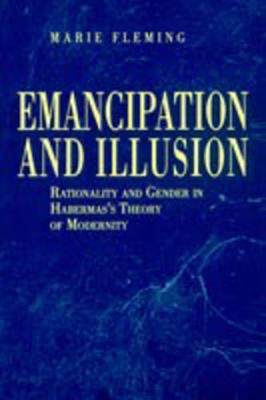In this comprehensive analysis of Jürgen Habermas's philosophy and social theory, Marie Fleming takes strong issue with Habermas over his understanding of rationality and the lifeworld, emancipation, history, and gender. Throughout the book she focuses attention on the various ways in which an idea of emancipation motivates and shapes his universalist theory and how it persists over several major changes in methodology. Her critique of Habermas begins from the view that universalism has to include a vision of gender equality, and she asks why Habermas, despite deeply held concerns about equality and inclusiveness, repeatedly and systematically relegates matters of gender to secondary status in his social and moral theory. She extends her critique to a range of issues in his theory of rationality and examines what she views as his very problematical claims about truthfulness, art, and bourgeois intimacy.
The point of Fleming's critique of Habermas is not to dispute universalism, but to build on the key universalist principles of inclusiveness and equality. She is not persuaded by the view, shared by both sympathizers of Habermas and his postmodern critics, that to be for or against Habermas is to be for or against universalism. Her intention rather is to show that Habermas's theory of modernity is so structured that it cannot achieve its universalist aims. Contending that his theory is not universalist enough, she claims that universalism has to be reconceived as a radical, critical, and historical project.
- ISBN10 027102562X
- ISBN13 9780271025629
- Publish Date 15 April 1997
- Publish Status Active
- Publish Country US
- Imprint Pennsylvania State University Press
- Format Paperback (US Trade)
- Pages 252
- Language English
